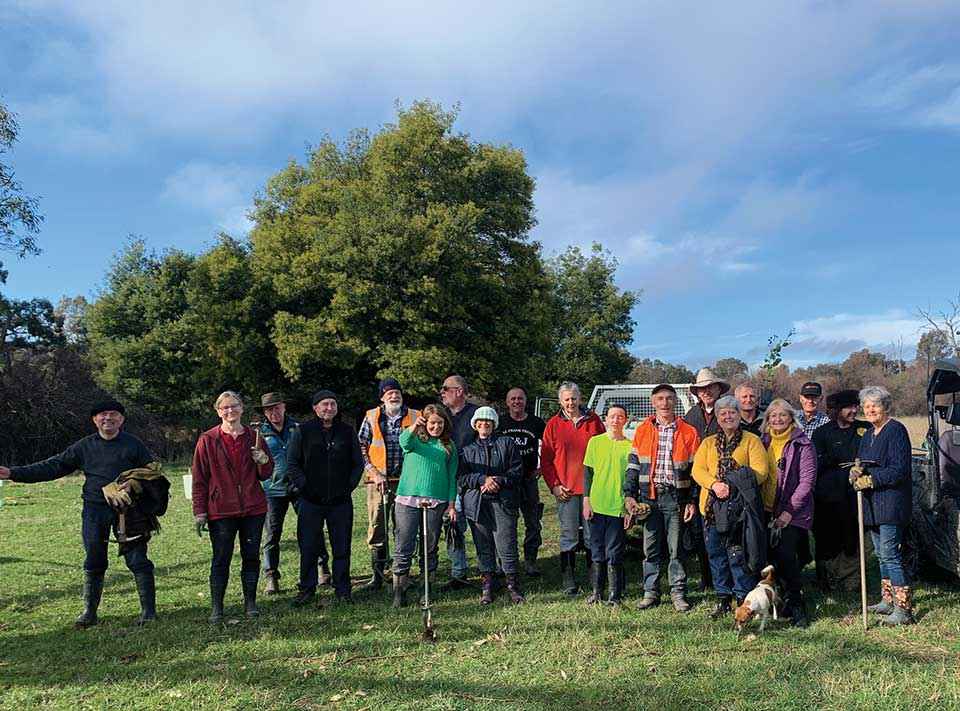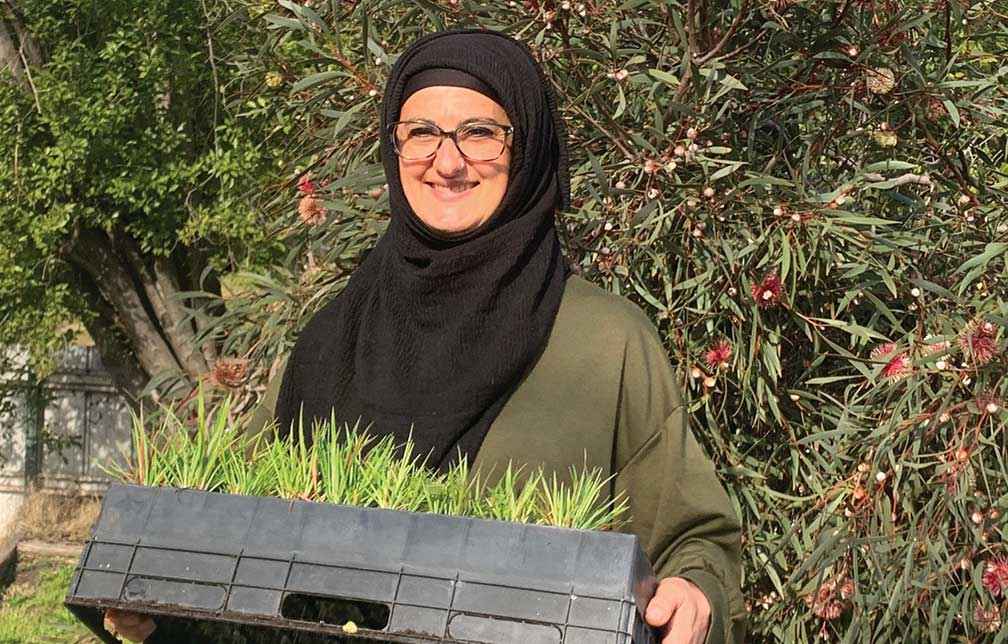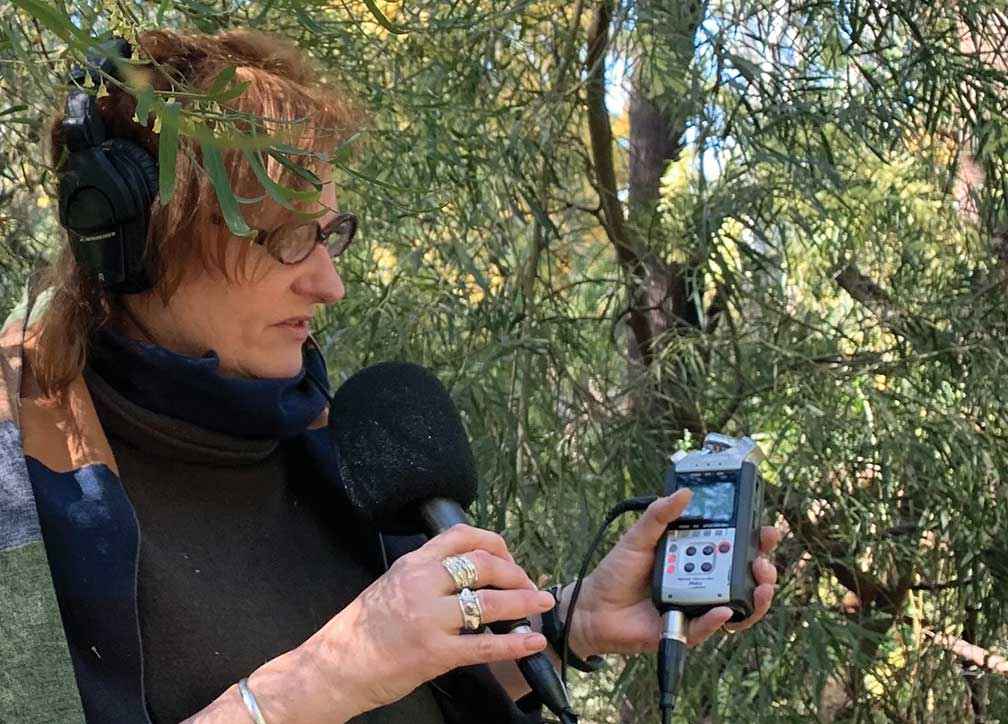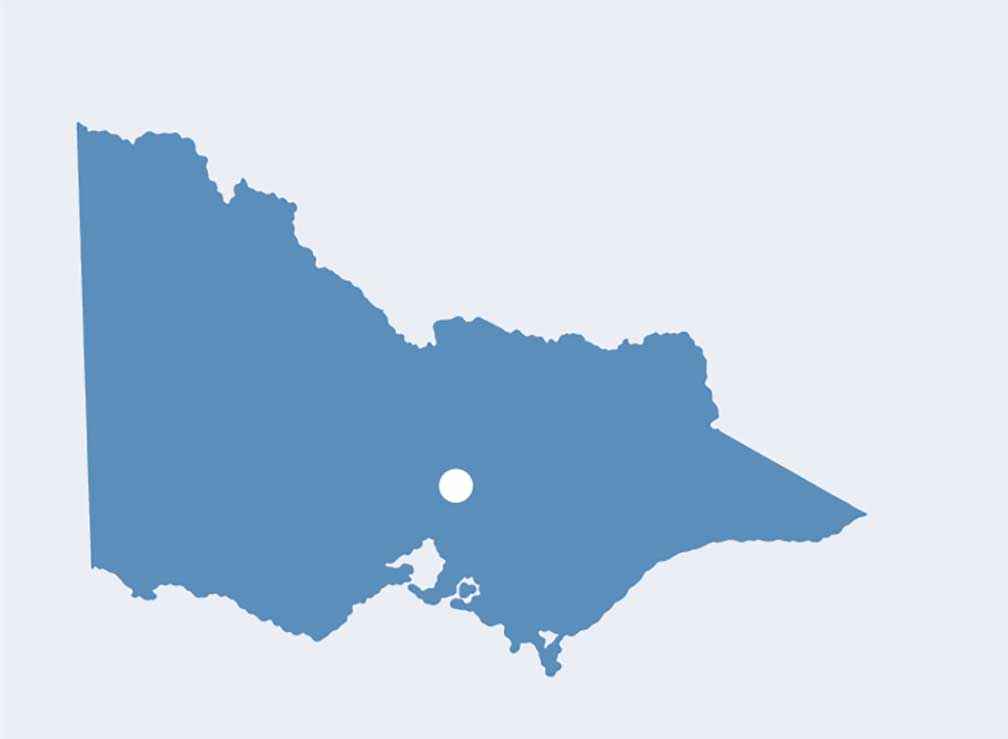Victorian Landcare Magazine - Winter 2022, Issue 84

Hopbush, tree violet, river red gum; there are 300 pots on the back of a trailer alongside bundles of stakes, piles of tree guards, spades, and mallets. A light drizzle is falling. It’s an early morning late in June 2021 and a dozen volunteers are milling about and shouting greetings at the season’s first planting of the Strath Creek Landcare Group (SCLG).
What could be more ordinary than a Landcare planting session? Plantings are one of the core activities in any Landcare year, but this hasn’t been a normal year. The pandemic has been raging for 18 months. Mortality rates are low across Australia, but life has changed in ways both large and small.
It’s why I’m alternating between knocking in tree stakes and using audio equipment to record the opinions of some of the rugged-up individuals on this chilly winter morning.
Noreen Foster, a farmer and one of the longest-standing members of SCLG, has strong views on many topics. As I wave a microphone in her face and ask her about tree guards, she pauses a moment before replying.
“A tree guard,” Noreen says, “seems to invite a wombat to either dig it up or shit all over it.”
Another voice chimes in from the background. “Always controversial!” says Terry Hubbard. Terry is one of the SCLG stalwarts and a former chair of the National Landcare Network.

Above: Farmer Selen Rifat is one of the new members who feature on the podcast.
Many of the planting crew have been members for years. Others, like farmer Selen Rifat, joined recently. I’d been a member for several years, alongside my husband Mark Williams, but we’d only recently moved to live in Strath Creek full time. Before the first COVID-19 lockdown we worked in Melbourne during the week. For me, that work involved working as a journalist and radio producer and making features for ABC Radio National.
SCLG was founded in 1996 and has grown from nine individuals to more than 60 families. Our members are passionate environmentalists who believe in sustainable agriculture. Gatherings are noisy, happy, and informative, with plenty of good wine and food, and lots of support for fellow members and the wider community.
We had discussed the idea of creating a history of the group in podcast form, but other projects were more pressing. COVID-19 suddenly provided a focus. Here was a global event, of a size and shape as yet unknown, and rather threatening. And here was a small rural environmental group composed of farmers, landholders, and nature lovers, trying to go about its everyday activities.
We decided to jump in and look at a year in the life of the group, against the background of the pandemic. The finished podcast runs from spring 2020 to spring 2021 and is called ‘Plant a tree to grow a community; the story of Strath Creek Landcare Group and our year in COVID.’
In July 2020, we’d formed a small committee that met over Zoom including President Susan King, Vice President Sue Martin, and Laurie Macmillan (since deceased), who, with her partner David Wakefield (since deceased) came up with the idea of a podcast.
Susan King suggested applying for a grant from Murrindindi Shire Council. We were very pleased to receive this grant as I could receive a fee for making the podcast and we could pay the composers and performers who featured. It also meant
we could produce a booklet to accompany the audio documentary.

Above: Strath Creek Landcare Group member and radio journalist Fiona Gruber recording the podcast.
The next task was to identify who to interview and which events to focus on. The interviews were recorded on a professional recorder, with an external condenser microphone for optimal quality. I was able to use ABC editing software, but there are many editing options on the market, including free downloads.
Some potential voices were keeping their distance so didn’t feature, and not everyone who volunteered made it into the final podcast.
The reality of any documentary is that much more is recorded than can be used.
COVID-19 restrictions were also challenging, with face-to-face interviews in gales and voices muffled by masks. Gatherings were strictly regulated and many of our usual Landcare activities – barbecues, platypus and rakali counts, and fencing sessions – had to be postponed.
As we went in and out of lockdown during 2020 and 2021, it seemed the rhythms of life would never resume their pre-COVID-19 tempo. However, just after the first well received broadcast of the 35-minute podcast to the Strath Creek Landcare Group, the COVID-19 landscape changed again; high vaccination rates and the less severe Omicron variant saw an end to lockdowns and contact tracing and checking in.
It’s these changes and the effect they have had on ordinary lives that make recording them so important. Government and medical archives will remain, as will media coverage of the bigger stories, but quieter voices, especially rural ones, tend to get lost.
Alongside COVID-19, all of us are facing climate change, species loss, and the ever-present threat of floods and fires. The years 2020–2021 have been hard ones for all communities, including ours. The Strath Creek Landcare Group lost four members, one to COVID-19, another to cancer and two to suicide.
In years to come we hope people will listen to our podcast and read the accompanying booklet as archival documents.
Some of us will be long gone and the pandemic will be a distant event. But this time, and these voices, and this fine organisation have been captured. And in a small way, that’s important.
This article was written by Fiona Gruber with assistance from fellow SCLG members Susan King and Sue Martin.
The podcast and booklet are available at www.strathcreeklandcare.wordpress.com
For more information email susan_king1@icloud.com
Strath Creek Landcare Group Inc.'s website: strathcreeklandcare.wordpress.com

Above: Strath Creek